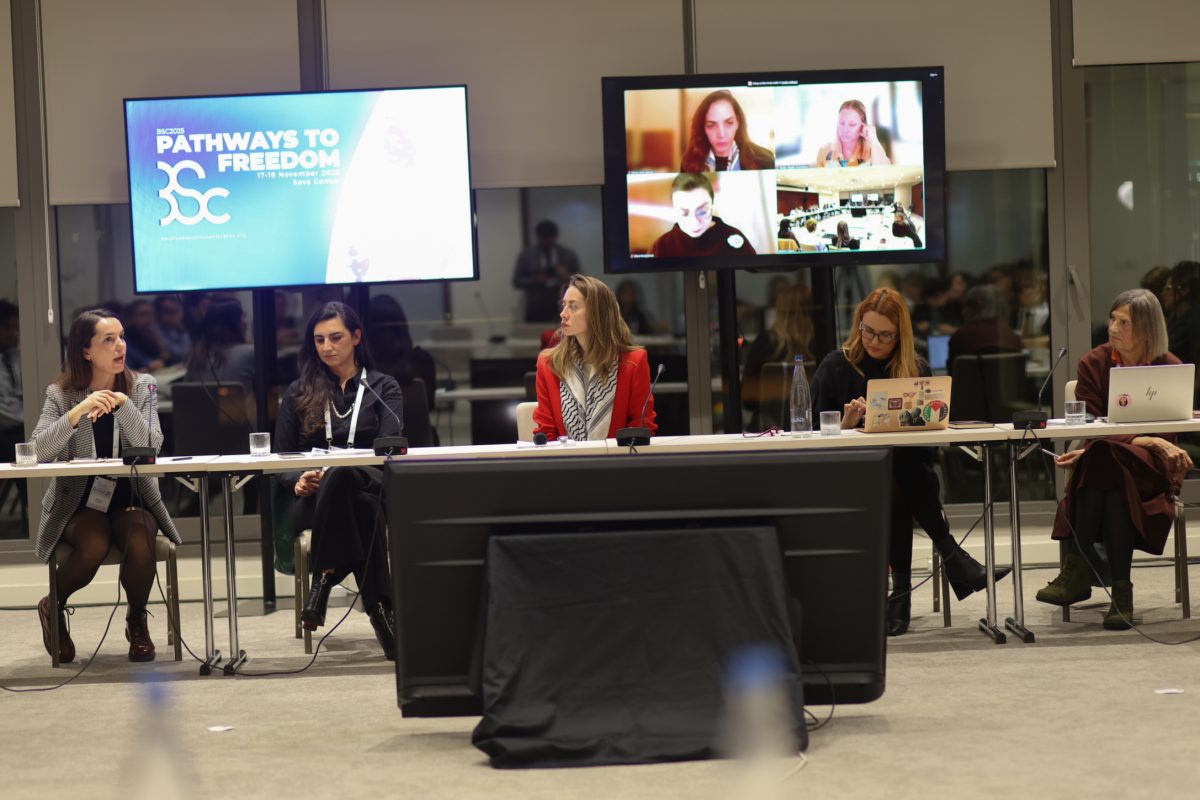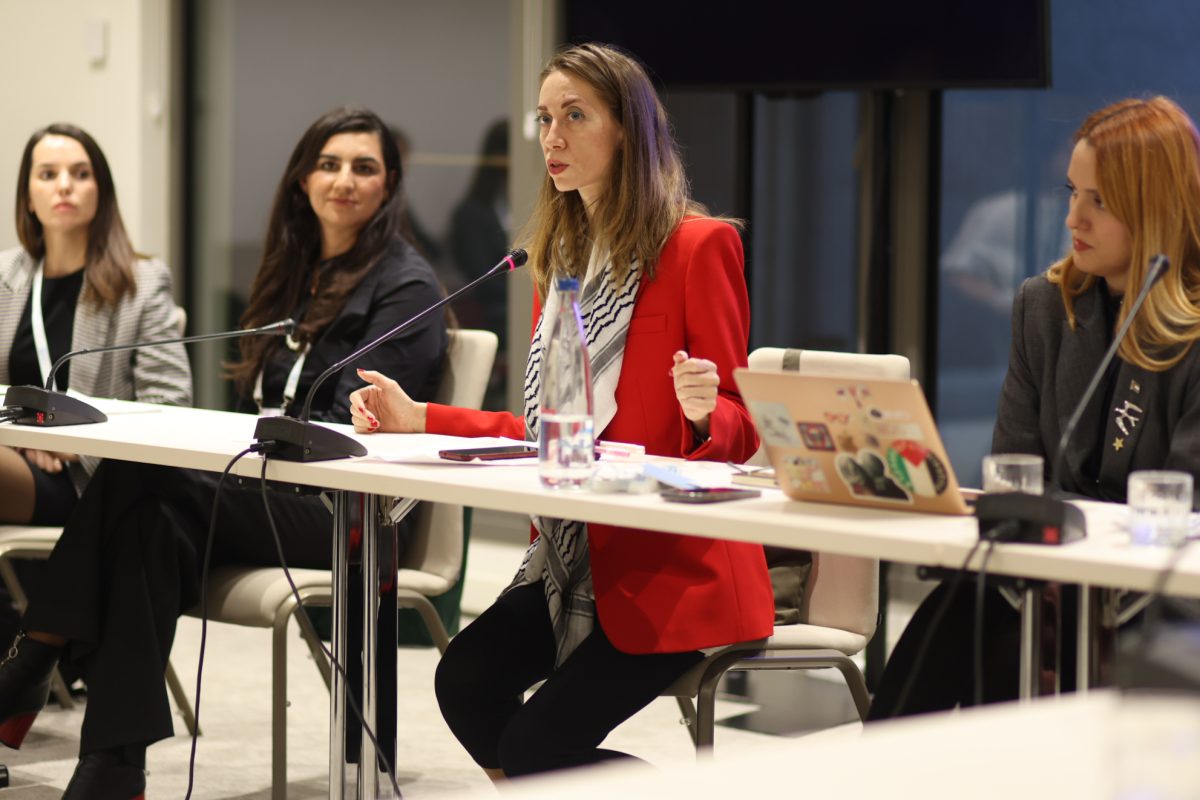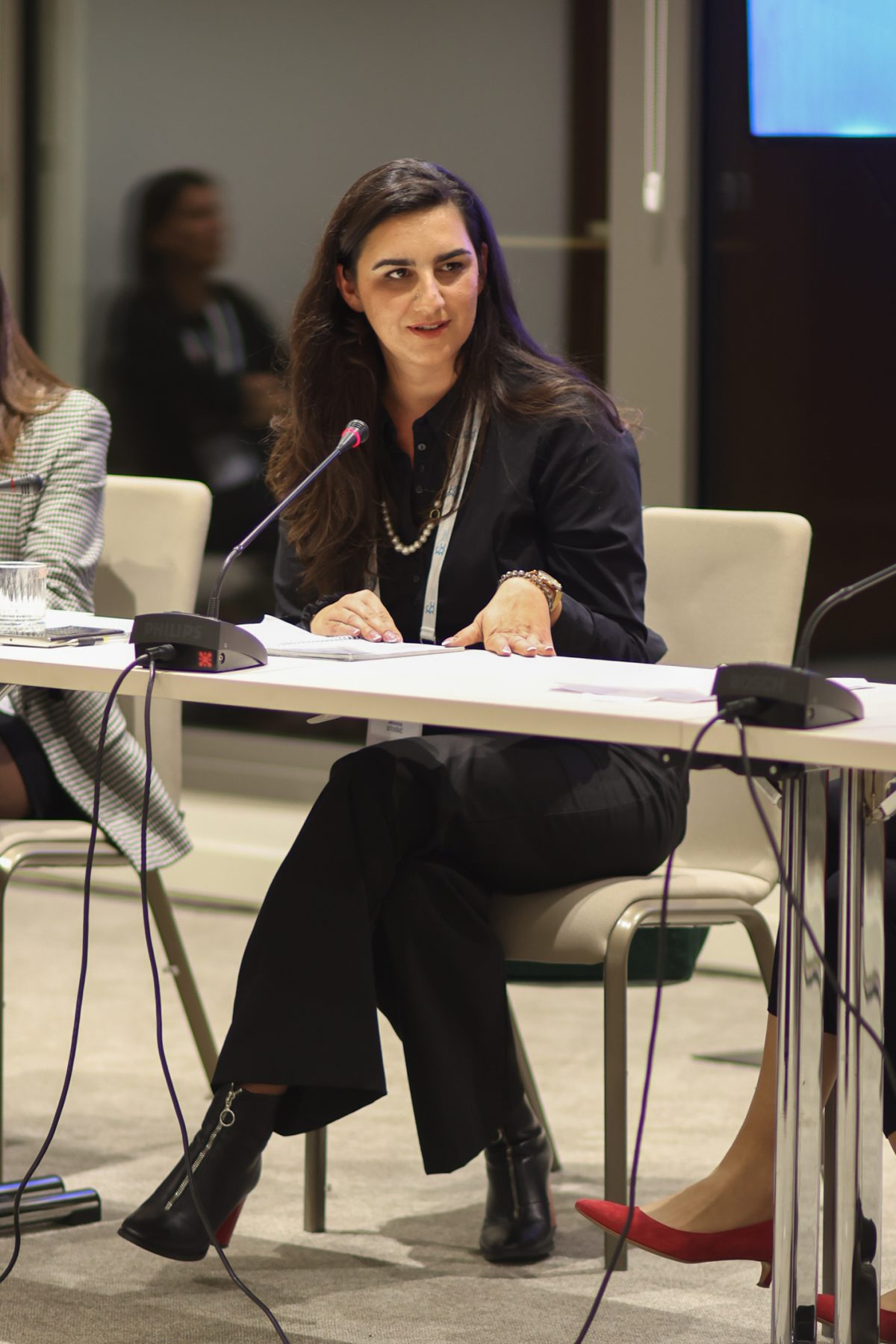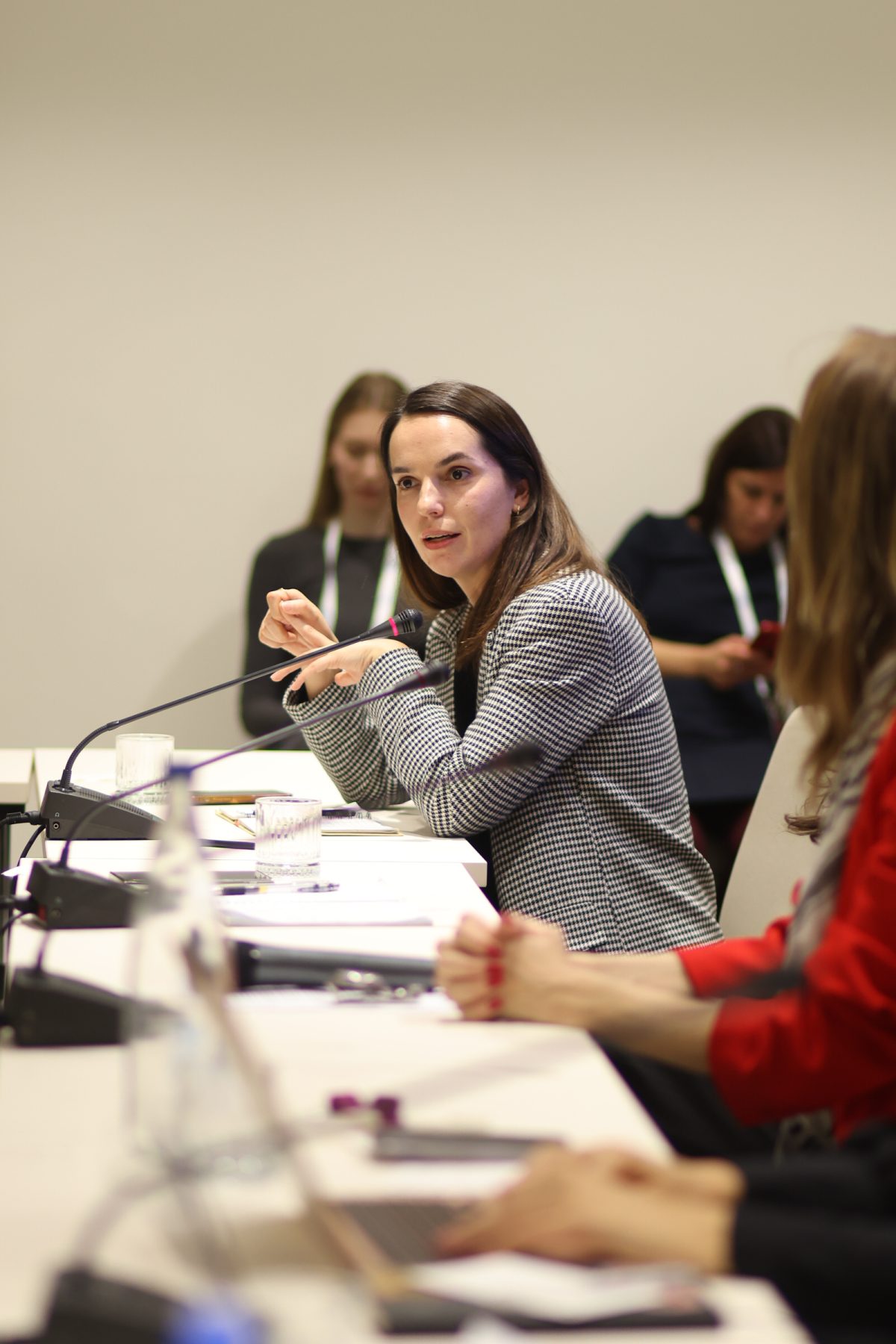
At the Belgrade Security Conference, the panel “Feminist Peace in Hostile Times” examined how global backlash, militarization, and anti-gender movements challenge the Women, Peace and Security (WPS) agenda.

Moderator Maja Bjeloš (BCSP) emphasized that women’s contributions to peacebuilding remain undervalued, even as conflicts in Ukraine, Gaza, and elsewhere make feminist approaches more urgent.
Nicola Popović (Gender Associations International) reflected on the 25-year legacy of UN Security Council Resolution 1325, noting that it emerged from pacifist women’s movements demanding human security rather than state-centric security. She warned that today the WPS agenda risks being “co-opted rather than transformed,” stressing that states must confront the structures that enable violence and militarization.

From Lebanon, Shirine Jurdi (WILPF) described the severe insecurity facing women across the Middle East. She stressed that in conflicts from Gaza to Yemen, women repeatedly ask “who protects us,” as civilian suffering continues to intensify. Jurdi called for demilitarizing security, restoring dignity, and ensuring women’s participation and access to resources: “Protection cannot be selective.”
Ukraine’s experience was outlined by Olena Kharytonova, adviser to the Ministry of Education. She highlighted efforts to secure justice for survivors of conflict-related sexual violence and underscored the difference between “sustained” peace and “just” peace. With thousands of women on the frontlines yet excluded from negotiations, she argued that accountability for war crimes and the inclusion of displaced Ukrainians must be non-negotiable.

From North Macedonia, Sara Milenkovska (Stella Network) emphasized that anti-gender actors exploit insecurity, eroding mechanisms for equality even as the country presents itself as progressive. She warned of rising transphobia and shrinking democratic space, arguing that feminist strategies must rely on transnational solidarity, coalition-building, and mutual aid.

Serbian activist Snežana Jakovljević (Sandglass) stressed that women’s rights and security are inseparable. Drawing on experiences from the 1990s anti-war protests to the present, she argued that women remain the first to resist violence, yet state institutions increasingly co-opt and militarize WPS language while civil society faces growing financial constraints.

International consultant Milena Stošić linked the regional backlash to global trends of state capture and rising gender-based violence. She underscored that young women are leading today’s democratic resistance but often face unacknowledged risks. She called for bottom-up strategies and renewed investment in grassroots organizing: “We must return to the basics of direct democratic practice.”

From Kosovo, Marigona Shabiu (YIHR) highlighted shrinking civic space as political actors attempt to limit women’s agency. She stressed intergenerational cooperation and cross-border feminist solidarity as essential tools for preserving progress: “Resistance is our shared task — losing hope is exactly what anti-gender actors want.”
Audience questions addressed the influence of religion on anti-gender movements and whether cooperation with religious leaders is necessary. Panelists agreed that confronting the backlash will require broader alliances, clearer messaging, and persistent community engagement.
Despite increasingly hostile contexts, speakers shared a unified message: feminist peace approaches remain vital, and safeguarding the WPS agenda depends on solidarity, resilience, and sustained grassroots action.

